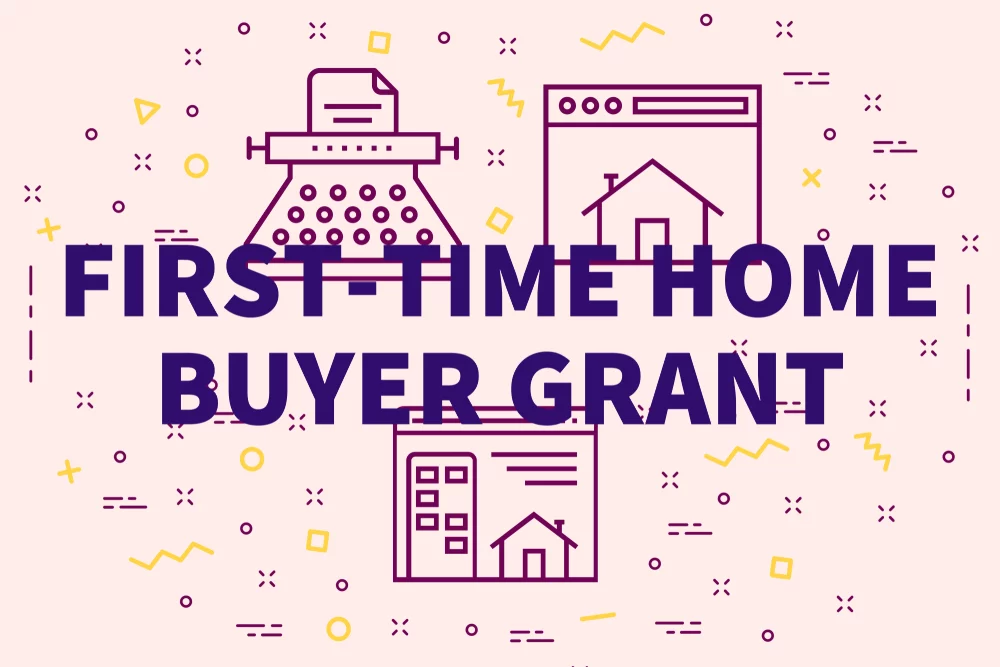Did you know it takes over four years for the average household to save enough money for a 20% down payment on a home?
At first glance, four years might not sound like a long time. But it all depends on how much you make, what kind of house you want, and how much you're able or willing to set aside. For many, the thought of saving for a down payment is daunting.
Fortunately, there are other ways for first-time home buyers to finance their purchases. If you'd like to buy your first home but you're on a tighter budget, you may qualify for a grant.
There are several home buyer grant options for those getting their first home. In this article, we'll go over some of the top first-home buyer grants out there. Keep reading for everything you need to know.

First-time home buyer grants are a type of financial assistance for purchasing homes. Specifically, it's a grant designed to create new homeowners in the United States, resulting in stronger economies and better neighborhoods.
Grants are usually awarded by the government on the federal, state, and local levels. Some charities and housing foundations also offer first-time home buyer grants.
Unlike loans, grants don't need to be repaid. This is because homeownership is considered a public good. Institutions that offer grants hope to create more stable neighborhoods and more prosperous families by offering the grants.
To qualify for a housing grant, you must meet certain specific criteria. The criteria you must meet can differ from one grant to another, so it's important to do your research and find out what each grant requires.
Here are a few to get you started.
The Downpayment Toward Equity Act is a bill introduced by Congress in 2021. It's a grant for first-generation home buyers. It offers extra grant money to renters who come from socially or economically disadvantaged backgrounds.
The Downpayment Toward Equity Act awards as much as $25,000 to eligible renters who have never purchased a home before.
Money awarded by this grant can be used for a down payment, closing costs, and other expenses. Recipients can even use the grant money to lower their mortgage rates by using discount points.
You can learn more about the Downpayment Toward Equity Act on the U. S. Congress website.
The National Homebuyers Fund is a nonprofit public benefit corporation that sponsors first-time and repeat home buyers. Grants from the National Homebuyers Fund may cover up to five percent of a home's purchase price.
As a first-time home buyer, you can use this program with a conventional, FHA, VA, or USDA home loan. Loans are forgiven five years after closing the sale.
You cant apply for the grant directly; your mortgage company will need to do it on your behalf. However, you can learn more about the National Homebuyers Fund on its website.
The HomePath Ready Buyer program is offered by Fannie Mae, a government-sponsored enterprise that backs the mortgage market. The HomePath program gives qualifying buyers up to three percent of their home's purchase prices back.
This money can help with closing costs, but there's a limit to what you can buy using the grant. You're only eligible if you're buying a HomePath property, which is a foreclosed home owned by Fannie Mae.
Additionally, applicants must complete a homebuyer education course in order to be eligible for the grant.
The Good Neighbor Next Door program is technically a forgivable loan, not a grant. However, the amounts it offers are so generous that it's worth noting here.
This program from the U.S. Department of Housing and Urban Development is available to people working in the public sector. These include schoolteachers, firefighters, emergency medical technicians, and law enforcement officers.
Home buyers who qualify for the loan can receive a 50% discount on certain homes in revitalization areas. To be eligible for loan forgiveness, you must live in the same house for three years. After that, you don't need to pay back the discount.
You can learn more about this program on the HUD website.
Often, state and local governments will sponsor housing grants for first-time buyers. Qualifying home buyers can expect to receive grants starting at $500. Grant money can be applied toward closing costs, reducing mortgage rates, or down payments.
Local housing grants typically require buyers to meet certain credit standards and earn a household income within a specific range. However, these standards should be quite achievable for most hard-working renters.
To find out about grants that may be available near you, you'll need to visit your state or municipality's public-facing website. You may want to try searching for housing assistance or housing grants.
First-time home buyers saving for homes don't always have to wait until they've set back all the money they need on their own. As long as you meet home buyer grant requirements, you can get a little help reaching your home-ownership goals.
When you're in the process of buying a home, there's a lot you have to learn. Fortunately, Realty Biz News has you covered with relevant, up-to-the-minute updates on real estate. Keep reading our blog for more.
I've been trying to get my credit so I could buy a home I'm been disabled for 10 years and it is hard to save money for a down payment I have about 5000 dollars in debts can you please tell me how to fix my situation thanks
I would love to purchase a home I've never owned one but if you can help me I will appreciate it thank you
What you got to have to get this